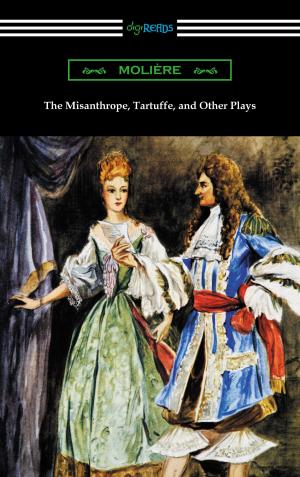| Author: | Euripides | ISBN: | 9781420904116 |
| Publisher: | Neeland Media LLC | Publication: | December 15, 2009 |
| Imprint: | Digireads.com Publishing | Language: | English |
| Author: | Euripides |
| ISBN: | 9781420904116 |
| Publisher: | Neeland Media LLC |
| Publication: | December 15, 2009 |
| Imprint: | Digireads.com Publishing |
| Language: | English |
Euripides (480 BC-406 BC) is revered as one of the three great tragedians of classical Athens, along with Aeschylus and Sophocles, and produced the largest body of extant work by any ancient playwright. He is considered to be the most modern of the three, and his works laid the foundation for Western theatre. His writing sticks out from that of his contemporaries because of his colloquial vocabulary, meter and syntax, distinct from the grandiose language of his predecessors. In writing "Orestes" (408 b.c.e.), Euripides utilized the mythology of the Bronze Age to reflect upon the politics of Athens during the Peloponnesian War. The story takes places after Orestes has murdered his mother to avenge his father, Agamemnon, and follows him as he attempts to save his own life. The play explores themes of man's subordination to the gods and the conflict between natural law and man-made law.
Euripides (480 BC-406 BC) is revered as one of the three great tragedians of classical Athens, along with Aeschylus and Sophocles, and produced the largest body of extant work by any ancient playwright. He is considered to be the most modern of the three, and his works laid the foundation for Western theatre. His writing sticks out from that of his contemporaries because of his colloquial vocabulary, meter and syntax, distinct from the grandiose language of his predecessors. In writing "Orestes" (408 b.c.e.), Euripides utilized the mythology of the Bronze Age to reflect upon the politics of Athens during the Peloponnesian War. The story takes places after Orestes has murdered his mother to avenge his father, Agamemnon, and follows him as he attempts to save his own life. The play explores themes of man's subordination to the gods and the conflict between natural law and man-made law.















